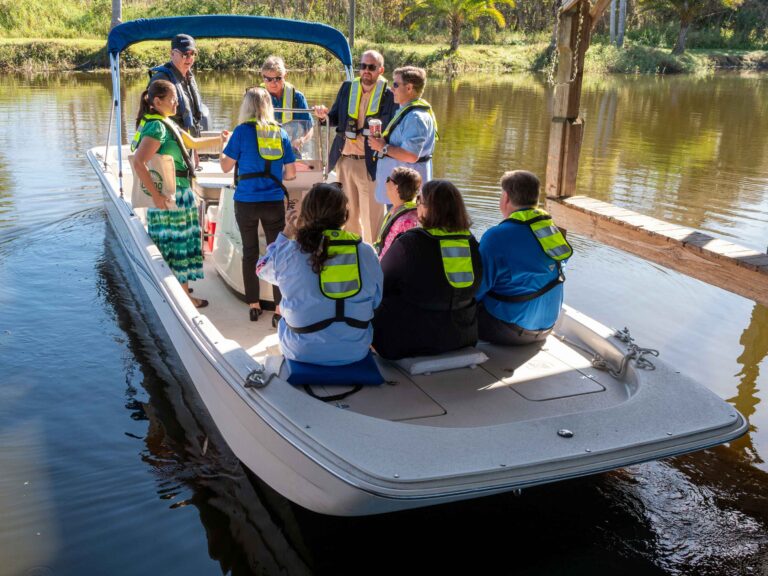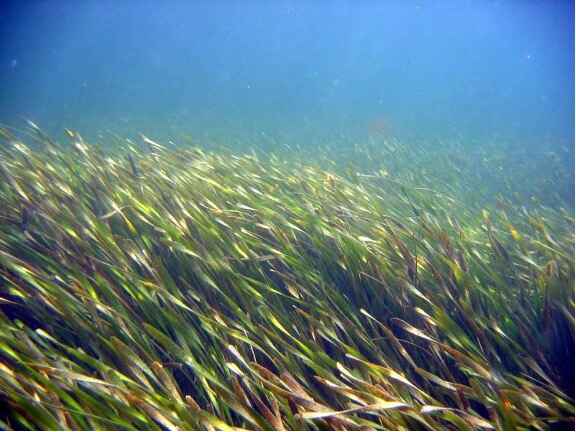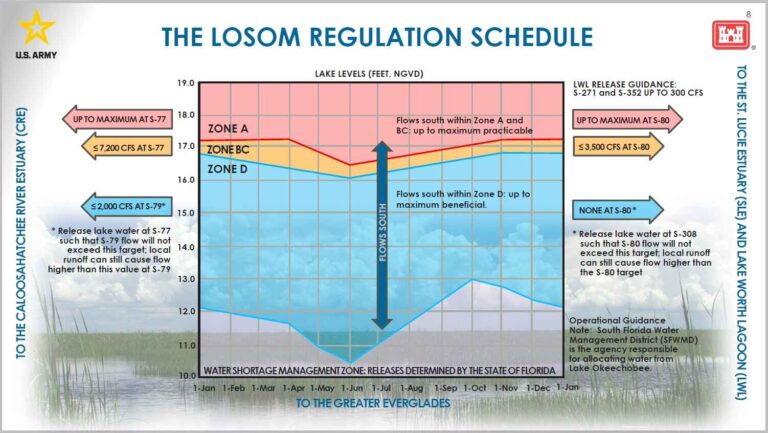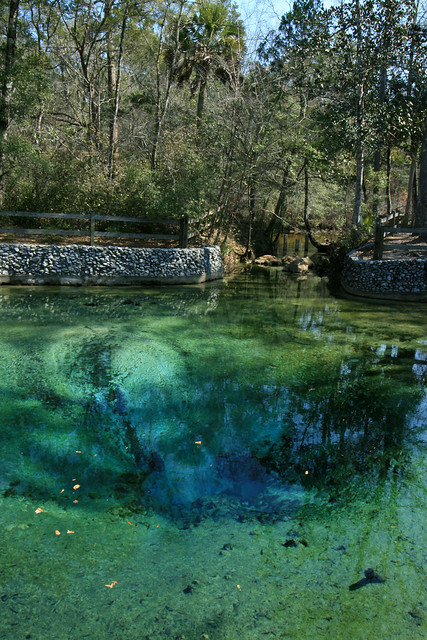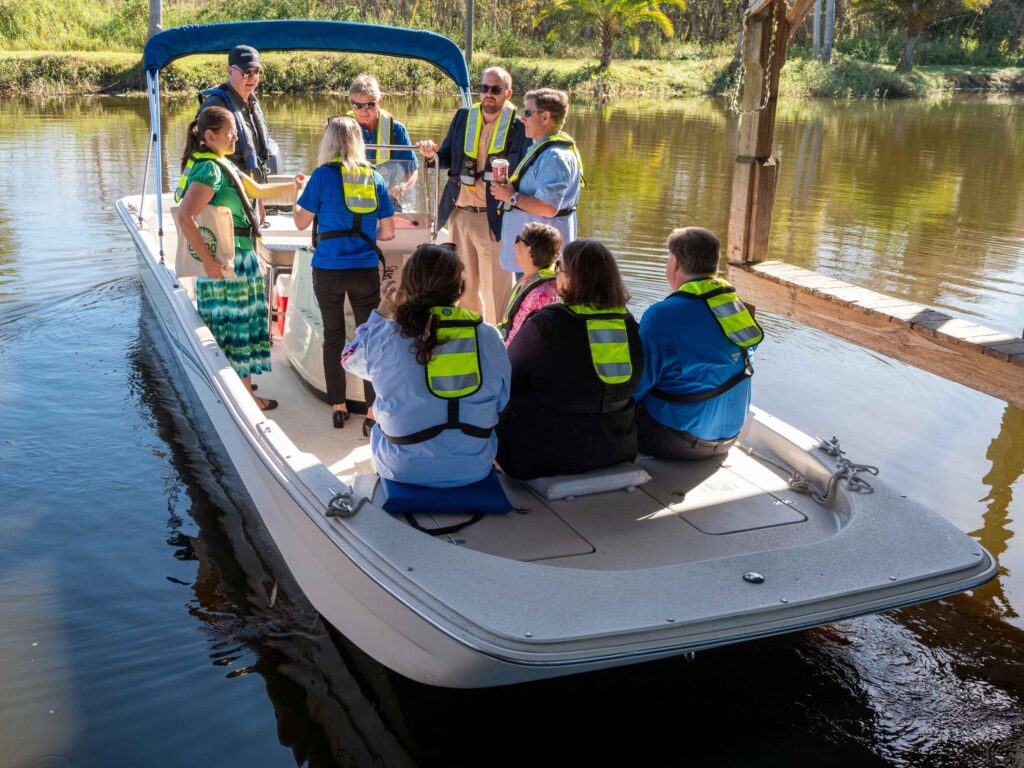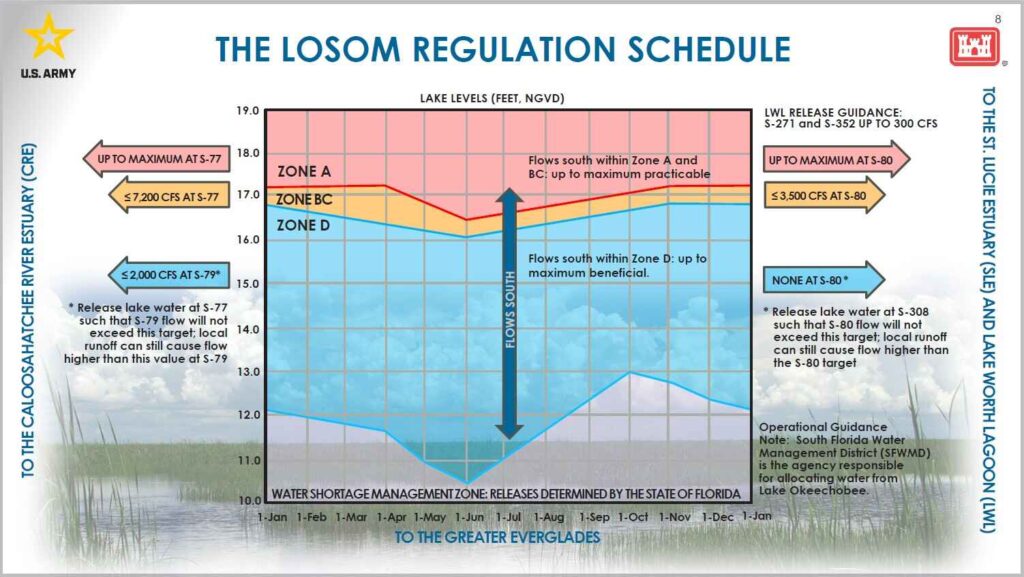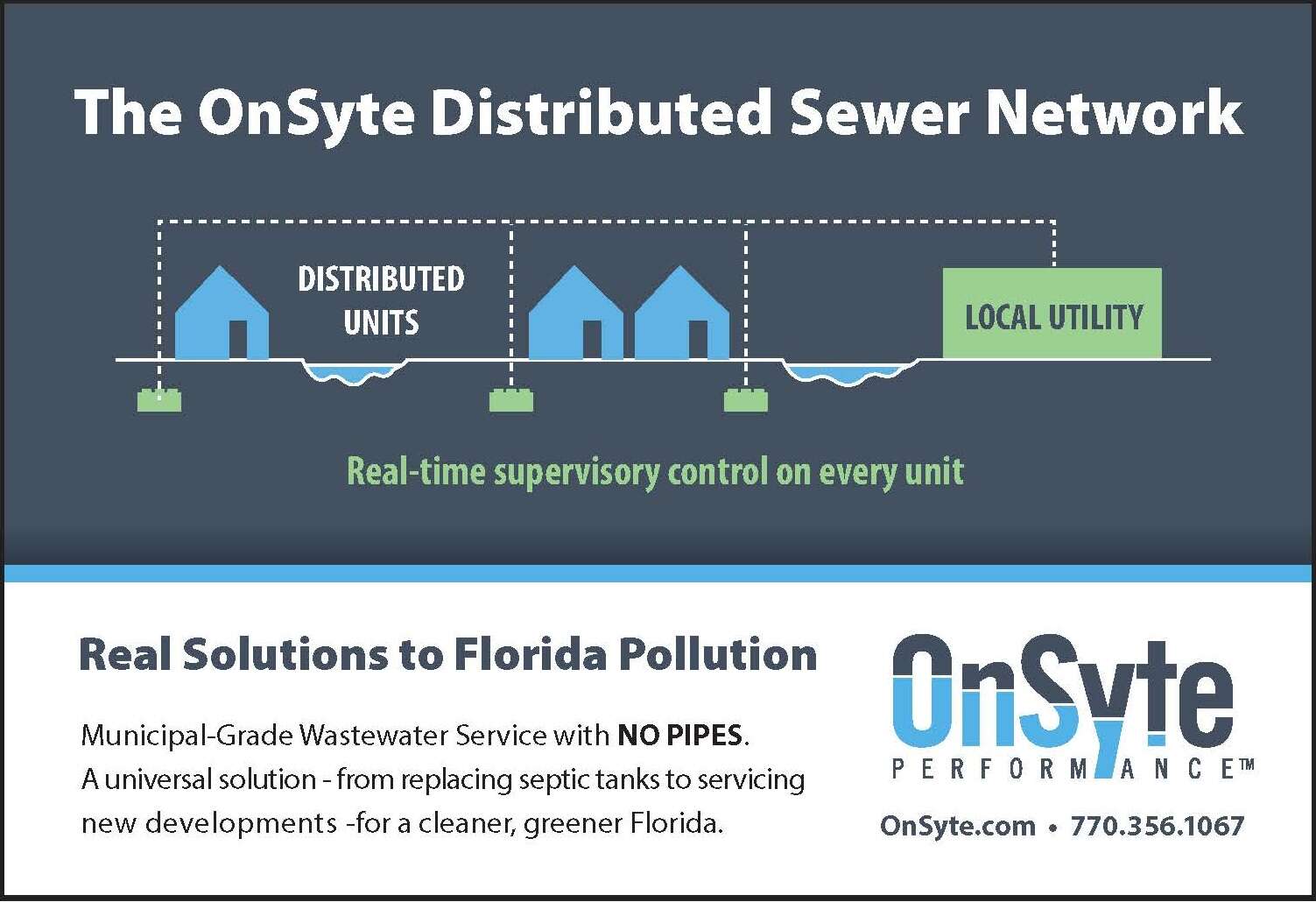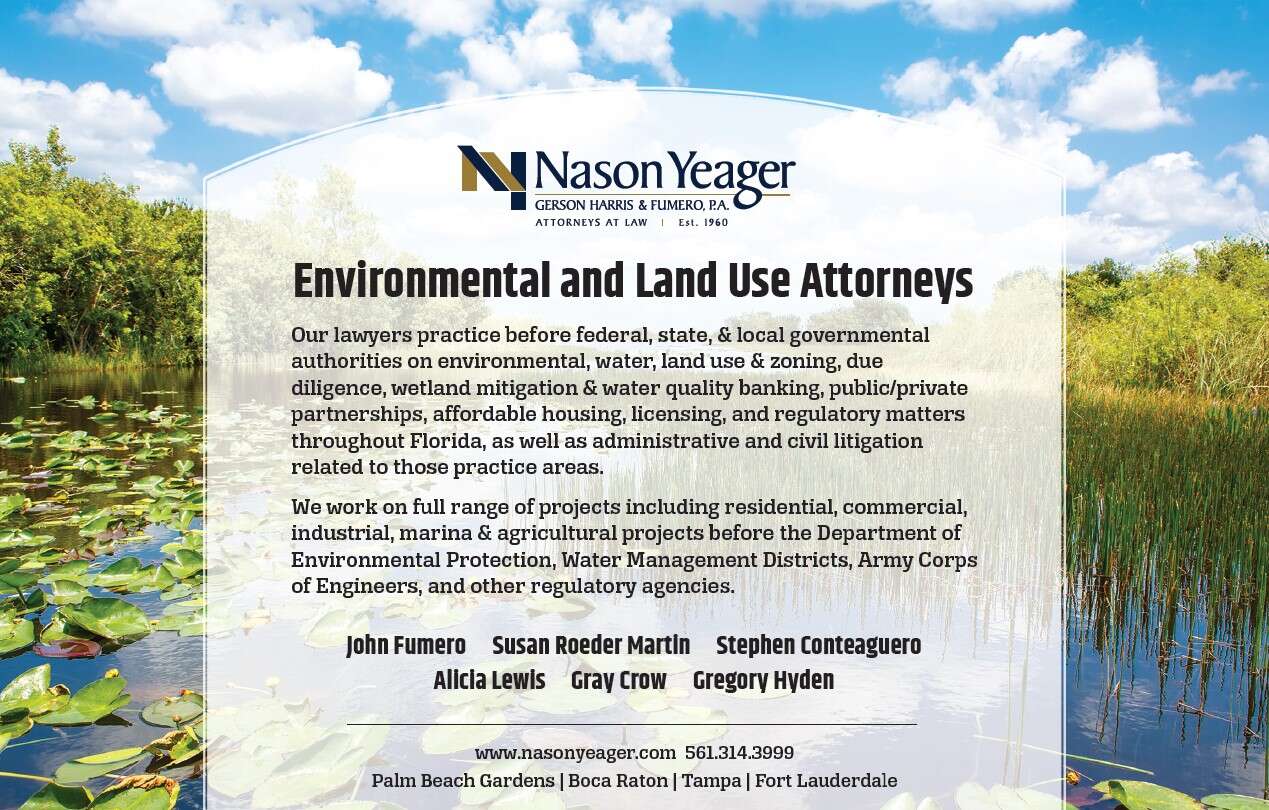
Col. Brandon L. Bowman assumed command of the U.S. Army Corps of Engineers (USACE), Jacksonville District, during a Change of Command ceremony held July 26 at the Jacksonville Center for the Performing Arts, Jacoby Symphony Hall.
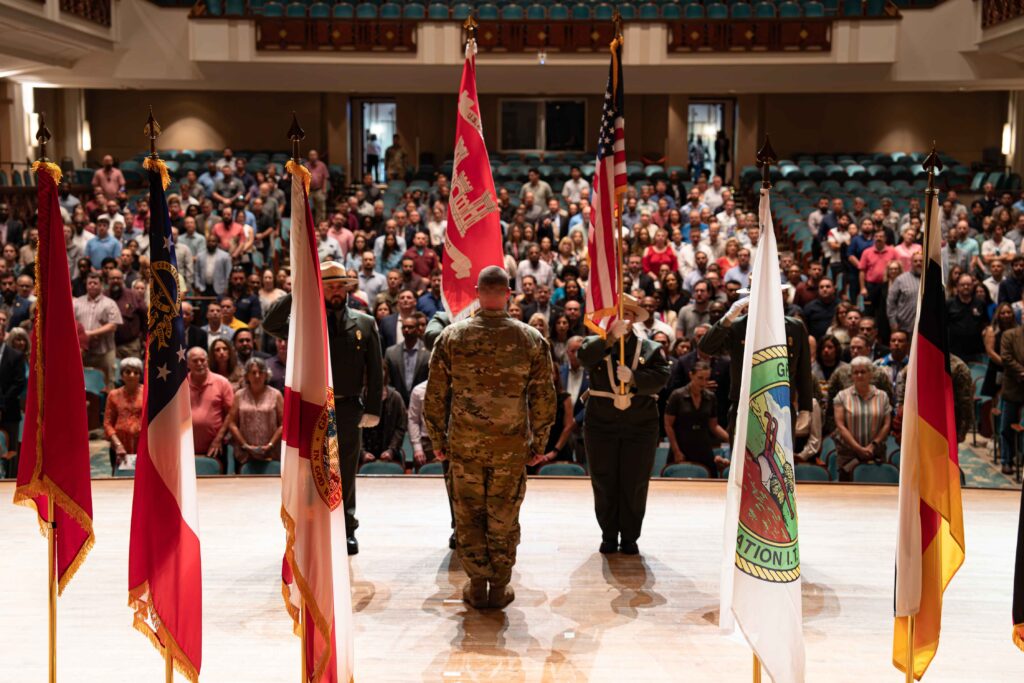
As Jacksonville District Commander, Bowman assumes responsibility for Florida’s federal development of water resources. Jacksonville District’s annual program exceeds $800 million. It includes the USACE’s largest ecosystem restoration project – America’s Everglades, the nation’s most extensive regulatory program, and the largest federal coastal program in the United States.
“I am incredibly humbled to join this outstanding district full of dedicated Department of the Army Civilians and the team of Federal, Tribal, State and Local partners here in Florida,” said Bowman. “Whether ecosystem restoration, flood risk management, or waterway and harbor navigation, the Jacksonville District will continue to partner and work with you to deliver projects that solve these complex engineering problems.”
Prior to joining the Jacksonville District, Bowman served as Operations Officer (G3), Headquarters, U.S. Army Corps of Engineers; Chief of Staff of the U.S. Army Engineer School; Commander of the 5th Engineer; Battalion; Command Engineer of the 1st Capabilities Integration Group (Airborne); and Facility Program Manager for the White House Military Office.
The Change of Command is a traditional ceremony that is rich in symbolism and military heritage. Passing the colors from the departing commander to the incoming commander emphasizes the continuity of leadership and unit identity despite changes in individual authority. The ceremony also symbolizes the passage of responsibility from the departing commander to his successor.
Commissioner of Agriculture Wilton Simpson Launches Natural Disaster Recovery Loan Program for Florida Farmers Impacted by Hurricane Debby
Florida Commissioner of Agriculture Wilton Simpson announced that Florida farmers, ranchers, and growers impacted by Hurricane Debby can now apply for low-interest and interest-free loans through the Agriculture and Aquaculture Producers Natural Disaster Recovery Loan Program. Loans can be used by eligible agriculture and aquaculture producers to restore, repair, or replace essential physical property — including fences, equipment, greenhouses, and other buildings — or to remove vegetative debris.
“Supporting our farmers, ranchers, and growers in the aftermath of a natural disaster is not just about rebuilding and replanting — it’s about safeguarding our state and nation’s food security,” said Commissioner Wilton Simpson. “By providing immediate and efficient financing to our food producers through the Natural Disaster Recovery Loan Program, we’re ensuring that Florida’s agriculture continues to thrive and sustain us all.”
Impacted producers are encouraged to take photos of any property damage sustained from Hurricane Debby and to save all receipts for recovery efforts and supplies. Specific details on the application process are available on the program’s webpage.
Agriculture and Aquaculture Producers Natural Disaster Recovery Loan Program
- Low-interest or interest-free loans up to $500,000 for eligible agriculture and aquaculture producers that have experienced damage or destruction from Hurricane Debby.
- Loans may be used to restore, repair, or replace essential physical property, including fences, equipment, greenhouses, and other buildings, or to remove vegetative debris.
- Interested producers can learn more or apply here.
During a special legislative session in November of 2023, the Florida Legislature passed House Bill 1-C, which provided $75 million to the Florida Department of Agriculture and Consumer Services for a revolving loan fund to support impacted agriculture and aquaculture producers recover from natural disasters.
FWC: 50 Florida schools receive funding for the annual School Fishing Club Program grant
The Florida Fish and Wildlife Conservation Commission (FWC) will issue a School Fishing Club Grant to 50 schools for the upcoming school year. The School Fishing Club Program is an annual educational grant program that teaches youth anglers about best fishing practices to help ensure the future of fishing in Florida.
Each selected school fishing club will be awarded $500 to assist with club expenses, such as gear and tackle, so they can get out on the water and reel in some fish. The FWC also provides program curriculum and educational materials to be taught throughout the school year by the club sponsor. The curriculum is comprised of lessons and activities on ethical angling, conservation, Florida’s aquatic habitats, basic fishing gear, and general fishing concepts, and is applicable to both fresh and saltwater fishing. Additionally, at least one conservation project activity must be completed each school year and is an opportunity for clubs to earn points for a chance to win prizes.
This FWC program is a joint effort of internal collaboration between the FWC’s Division of Freshwater Fisheries Management, Division of Marine Fisheries Management, and the Florida Youth Conservation Centers Network.
The program is supported by funding from the Coastal Conservation Association and the Fish & Wildlife Foundation of Florida. Funding from the Fish & Wildlife Foundation of Florida is provided by Mrs. Connie and Mr. Garner Koons. This program is supported by local partners including Mud Hole Custom Tackle, Hobie Eyewear, Pure Fishing and Flambeau Outdoors.
Visit MyFWC.com/SFC for the full list of schools that have been selected for the grant.
The Fish & Wildlife Foundation of Florida is a nonprofit organization dedicated to supporting the FWC and other public and private partners to conserve Florida’s native animals and plants and the lands and waters they need to survive. Operating as a statewide community foundation for conservation, the Foundation has raised and donated more than $71 million to conserve nature and our outdoor heritage. More information can be found at wildlifeflorida.org
If you missed the opportunity to apply for the School Fishing Club Program grant this year, the grant application will open in March of 2025 for the 2025-26 school year.
For more information about the School Fishing Club Program, visit MyFWC.com/SFC.
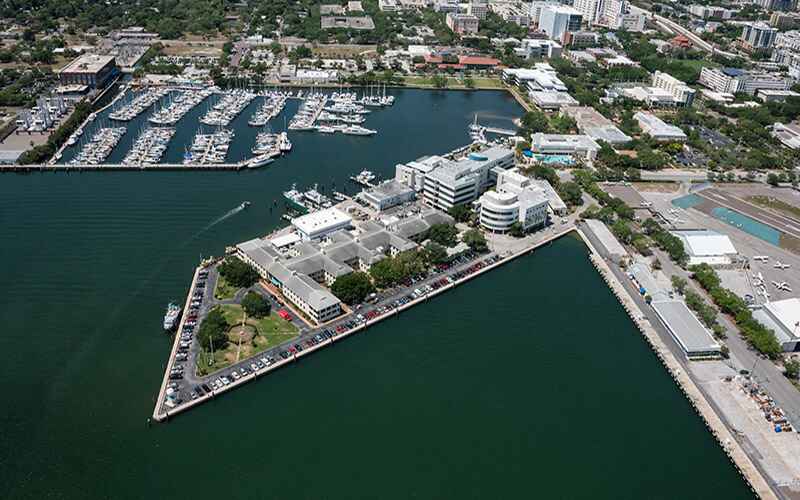
Three CMS students earn prestigious USF Fellowships
Three incoming CMS students were awarded prestigious USF fellowships, joining eight current CMS students with similar distinctions.
The University of South Florida recently announced the recipients of the 2024 Office of Graduate Studies Fellowships, with three of the prestigious scholarships awarded to students at the College of Marine Science. These fellowships recognize students with outstanding credentials and achievements in academia.
Devin Coffey earned the Presidential Doctoral Fellowship, which brings five years of funding and awards incoming doctoral students who have made significant contributions to their field. Coffey joins the lab of Amelia Shevenell.
Jessica Sklar received the Graduate Student Success Fellowship, an award that provides financial assistance to new academically talented, first-generation doctoral students who have overcome considerable obstacles in the pursuit of a doctoral degree. Sklar is a student in the lab of Chris Stallings.
Rosanyely Santana was awarded the McKnight Doctoral Fellowship, a program that supports African American and Hispanic students in pursuit of their doctoral degrees. The goal is to promote underrepresented groups at colleges and universities in the state. Santana is a student in the lab of Frank Muller-Karger.
Current 2024 CMS fellows include Shi Jing, Presidential Doctoral Fellowship; Sophia Emmons and Kennedy Quillen, Graduate Student Success Fellowship; Angelique Rosa Marin and Naja Murphy, McKnight Fellowship; Dylan Halbeisen and Delfina Paola Navarro-Estrada, Graduate Research Fellowships Program.
Congratulations to these outstanding students for their well-deserved recognition!


